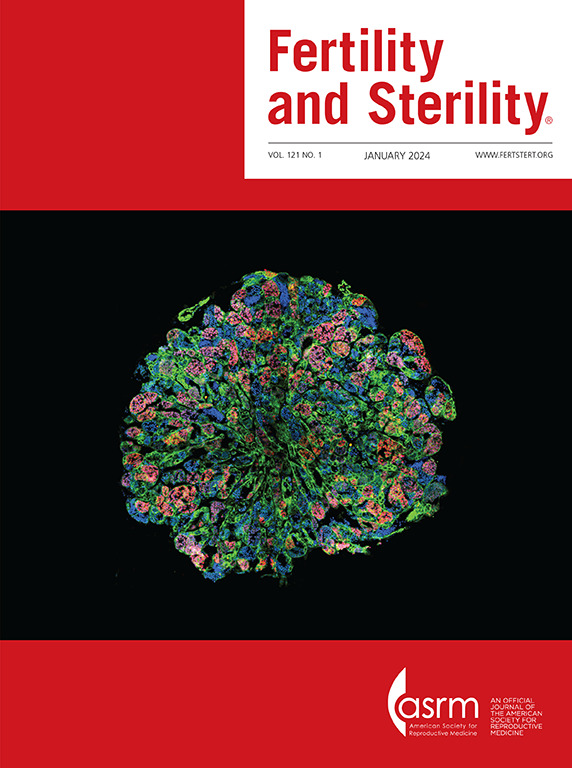Effects of folic acid and zinc sulfate on male factor subfertility: a double-blind, randomized, placebo-controlled trial
Abstract
Objective: To study the effects of folic acid and zinc sulfate treatment on semen variables in fertile and subfertile men.
Design: Double-blind, placebo-controlled interventional study.
Setting: Two outpatient fertility clinics and nine midwifery practices in The Netherlands.
Participant(s): One hundred eight fertile and 103 subfertile men.
Intervention(s): Both groups were randomly assigned to receive one of four treatments for 26 weeks: folic acid and placebo, zinc sulfate and placebo, zinc sulfate and folic acid, and two placebos. Folic acid was given at a daily dose of 5 mg, and zinc sulfate was given at a daily dose of 66 mg.
Main Outcome Measure(s): Before and after treatment, standardized semen and blood samples were obtained for determinations of sperm concentration, motility, and morphology according to World Health Organization guidelines; semen morphology according to strict criteria; and blood folate and zinc concentrations. Effects of the four interventions were evaluated separately in subfertile and fertile men.
Result(s): Subfertile men demonstrated a significant 74% increase in total normal sperm count and a minor increase of 4% abnormal spermatozoa. A similar trend was observed in fertile men. Preintervention concentrations of folate and zinc in blood and seminal plasma did not significantly differ between fertile and subfertile men.
Conclusion(s): Total normal sperm count increases after combined zinc sulfate and folic acid treatment in both subfertile and fertile men. Although the beneficial effect on fertility remains to be established, this finding opens avenues of future fertility research and treatment and may affect public health.





